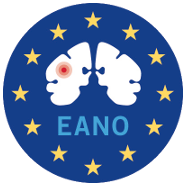-
Views
-
Cite
Cite
Catherine Maurice, Warren P. Mason, CN-14
RETROSPECTIVE ANALYSIS OF ISCHEMIC CEREBRAL STROKES IN PATIENTS DIAGNOSED WITH A GLIOBLASTOMA DURING THE COURSE OF A BEVACIZUMAB TREATMENT, Neuro-Oncology, Volume 16, Issue suppl_5, November 2014, Page v49, https://doi.org/10.1093/neuonc/nou243.14Close - Share Icon Share
Abstract
Bevacizumab is an anti-vascular endothelial growth factor approved in the treatment of recurrent glioblastoma. It prolongs progression-free survival, improes radiologic response and contributes to reduce the dose of dexamethasone required to control peritumoral edema. Arterial and venous thromboembolic events represent significant toxicities related to the use of angiogenesis inhibitors. Various mechanisms could be implicated in bevacizumab-related strokes, as cardioembolic, lacunar stroke related to hypertension, deep venous thrombosis passing through a patent foramen ovale, pro-coagulant effect of the underlying glioblastoma and radiation-induced damages on peritumoral vessels. The characterization of the risk factors and stroke mechanisms is primordial since bevacizumab is currently used in the treatment of glioblastoma and VEGF receptor tyrosine-kinase inhibitors are actually in clinical trials for malignant gliomas. The prevention and optimal treatment of strokes depend on a precise description of the pathophysiological mechanisms involved. This retrospective study is performed with the collaboration of Roche to evaluate in detail risk factors and stroke mechanisms in the population of patients diagnosed with a glioblastoma who presented an ischemic cerebral stroke during the course of a bevacizumab treatment. The impact of the stroke on the overall survival and the location of the infarct in relation to the tumor emplacement will also be evaluated. This project will be completed in time for the SNO meeting, since we received the official approval from Roche and the ethics committee of Princess Margaret Hospital.
- deep vein thrombosis
- ischemia
- hypertension
- edema
- cerebrovascular accident
- lacunar infarction
- patent foramen ovale
- dexamethasone
- glioblastoma
- angiogenesis inhibitors
- coagulants
- endothelial growth factors
- ethics committees
- infarction
- neoplasms
- radiology specialty
- bevacizumab
- protein-tyrosine kinase inhibitor
- thromboembolic event
- toxic effect
- glioma, malignant
- vascular endothelial growth factor receptors
- prevention
- progression-free survival






